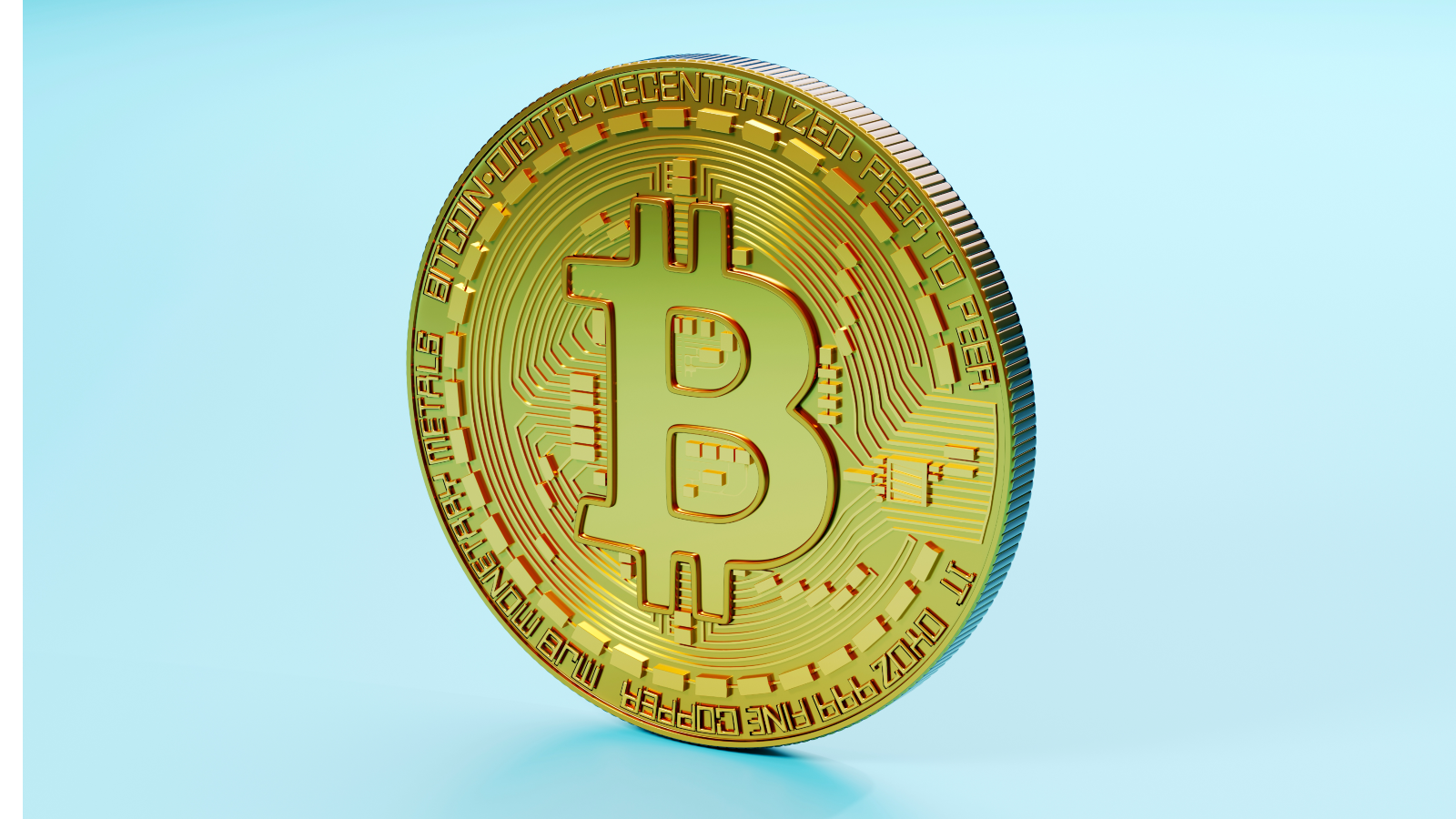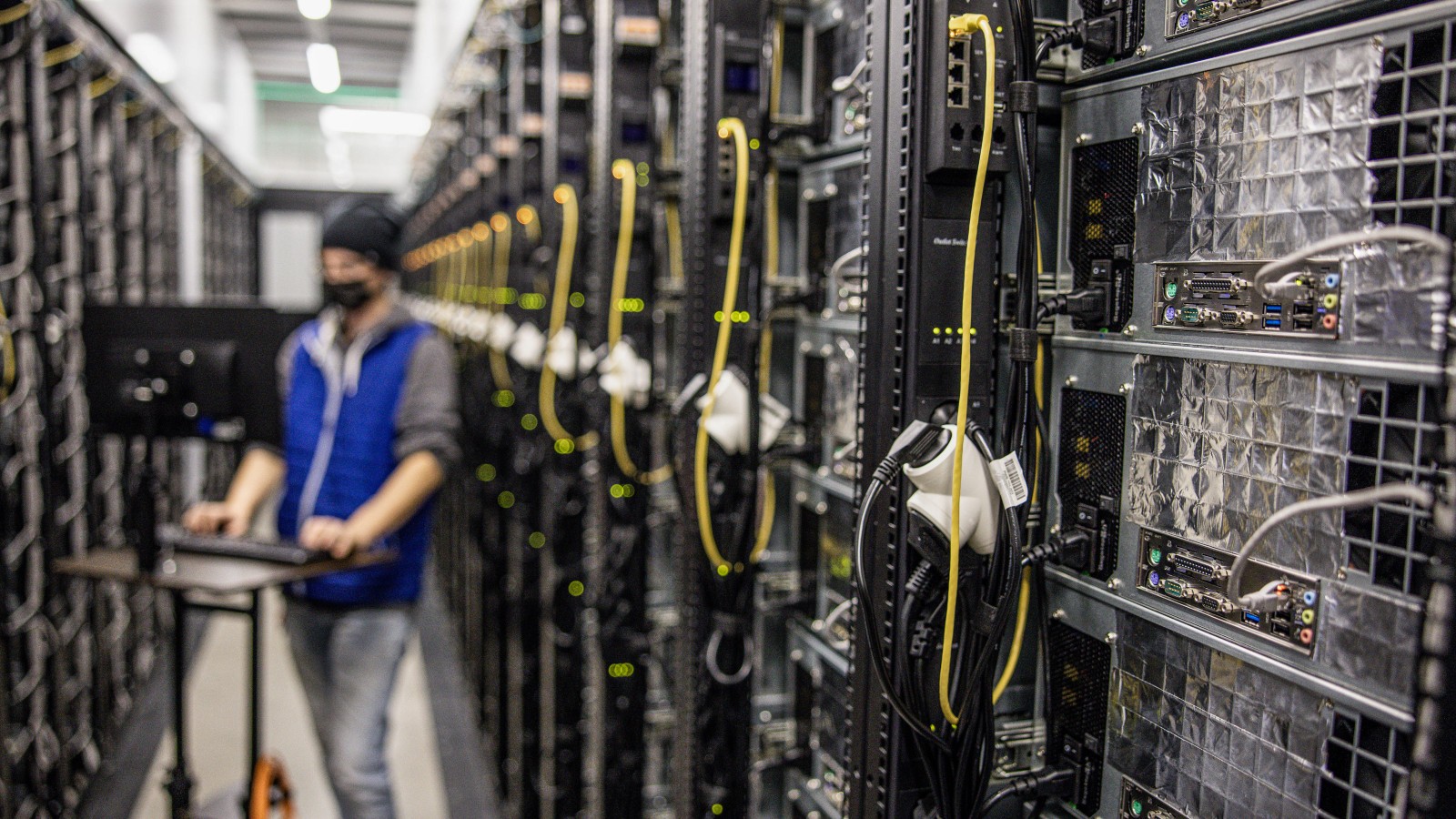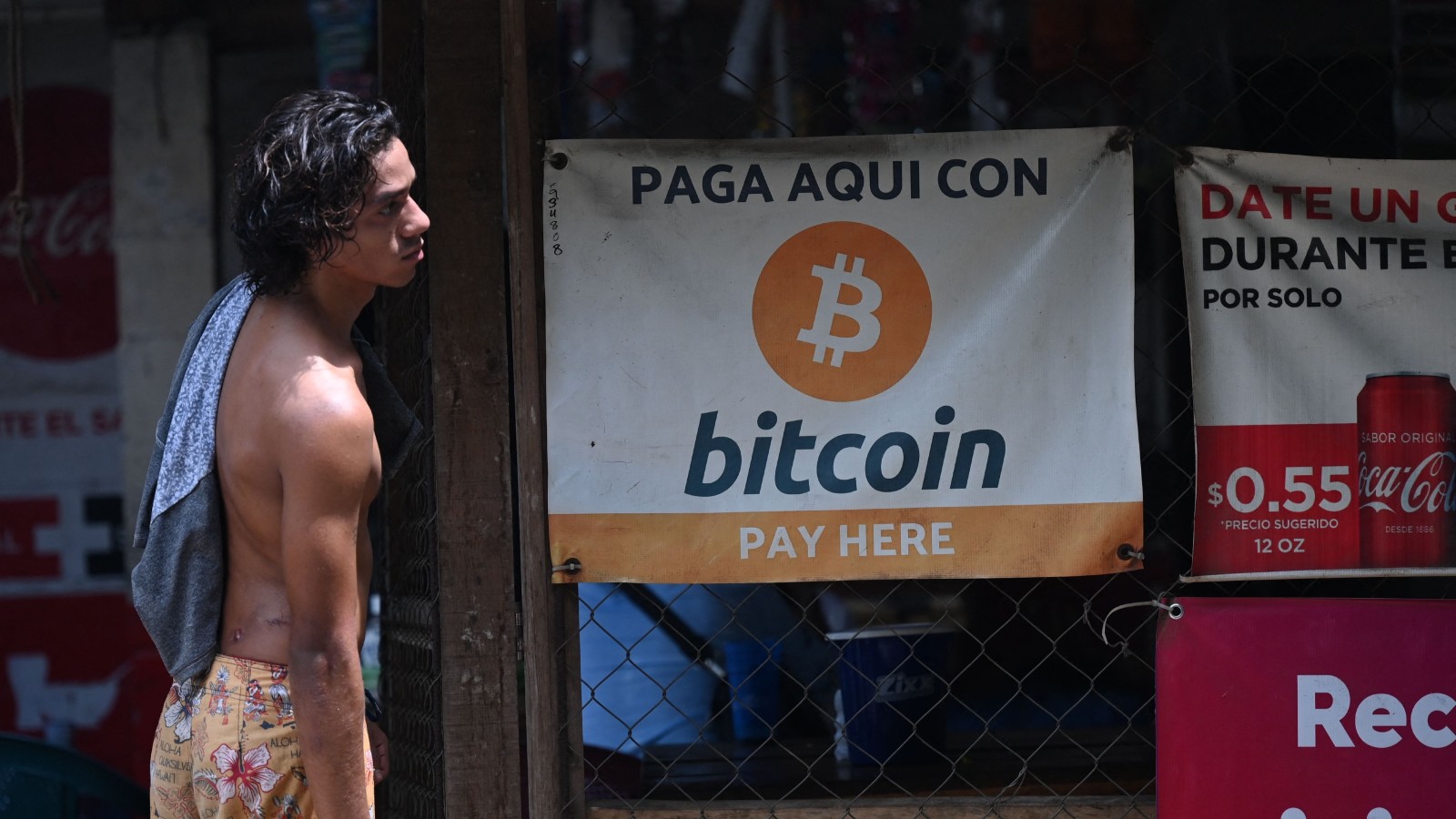Bitcoin: Definition, origin and risks
Bitcoin is a virtual 'cryptocurrency' traded much like real money.

Get the world’s most fascinating discoveries delivered straight to your inbox.
You are now subscribed
Your newsletter sign-up was successful
Want to add more newsletters?

Delivered Daily
Daily Newsletter
Sign up for the latest discoveries, groundbreaking research and fascinating breakthroughs that impact you and the wider world direct to your inbox.

Once a week
Life's Little Mysteries
Feed your curiosity with an exclusive mystery every week, solved with science and delivered direct to your inbox before it's seen anywhere else.

Once a week
How It Works
Sign up to our free science & technology newsletter for your weekly fix of fascinating articles, quick quizzes, amazing images, and more

Delivered daily
Space.com Newsletter
Breaking space news, the latest updates on rocket launches, skywatching events and more!

Once a month
Watch This Space
Sign up to our monthly entertainment newsletter to keep up with all our coverage of the latest sci-fi and space movies, tv shows, games and books.

Once a week
Night Sky This Week
Discover this week's must-see night sky events, moon phases, and stunning astrophotos. Sign up for our skywatching newsletter and explore the universe with us!
Join the club
Get full access to premium articles, exclusive features and a growing list of member rewards.
Bitcoin is a virtual currency known as a 'cryptocurrency that can be traded between buyers and sellers much like "real" money is.
One of the very first and most high-profile cryptocurrencies launched, Bitcoin is also the most well-known of this virtual money. Bitcoin first emerged in 2009 and its creator is allegedly called Satoshi Nakamoto, though several theories exist as to Nakamoto's real identity, according to Business Insider.
A bitcoin is essentially a digital computer file that is stored in something called a digital wallet, which can be accessed by software and apps.
You can send a whole bitcoin, or a portion of one, to someone else's digital wallet in exchange for goods and services. These transactions are recorded on a blockchain: a distributed ledger that is like a database, which everyone can see. The blockchain is stored on linked computers known as 'nodes'.
Because everyone can see that data stored on the blockchain, it means the transactions are extremely difficult to falsify, making it super secure.
Although there are now thousands of cryptocurrencies, Bitcoin is still the most valuable and sought after currently available.
Why is Bitcoin used?
While ordinary currency requires government backing and financial institutions to give them value, bitcoin has inherent value because there are only a finite supply of 21 million , according to NASDAQ.com.
Get the world’s most fascinating discoveries delivered straight to your inbox.
Bitcoin is not controlled by any one organisation or country, which means the performance of a nation's economy has little impact on its truly international and able to withstand geopolitical and localized economic shocks.
This means that Bitcoin is decentralized, and operates on a peer-to-peer (P2P) it can be passed directly between individuals without the need for a bank, or even a national economy.
The movement of bitcoin is overseen by a network of 'miners', who process the transactions on the blockchain and are rewarded with new bitcoin.
Because the process is virtual, it is also much easier to use in digital transactions in a way that makes it largely untraceable by banks and the authorities. This has led to it gaining a reputation for use by criminals such as hackers, who will often demand bitcoin as a means of payment from their victim, CNBC reported.
How are bitcoins produced?
There are a number of ways that bitcoins can be produced. They can be bought using real-world currency, or you can receive them from someone else as part of a transaction. They can also be produced virtually, in a process known as crypto mining.
Crypto mining is really difficult to achieve and needs lots of computer memory. It involves computers having to decipher equations and when one is completed a new block is added to the blockchain. The crypto miner then receives an amount of bitcoin units in exchange. There are places in the world with vast stacks of computers linked together to mine bitcoin in this way.

Is Bitcoin safe?
The 'crypto' in cryptocurrency refers to cryptography, a type of encryption. In bitcoin's case that encryption is based on the SHA-256 algorithm designed by the US National Security Agency. It is regarded as virtually impossible to crack, according to IBM.
Despite this, there have been incidents of Bitcoin exchanges being hacked, but this has involved attacks on the places where the digital currency was stored, such as on websites, but not the Bitcoin network itself. To achieve the latter, a hacker would have to own more than half of all nodes around the world.
Problems with Bitcoin
It is fair to say that not everyone is sold on the idea of Bitcoin. Tech moguls such as Elon Musk have professed their belief in them, but those with a more traditional outlook, such as the Head of the Bank of England, have expressed concerns. This is why their value tends to fluctuate from time to time, sometimes quite wildly.
It is for this reason that, although some nations like El Salvador have controversially adopted bitcoin as legal tender, as the Financial Times reported, it still presently tends to be traded in certain circles well beyond the mainstreams of society.

There are also environmental concerns around bitcoin due to the huge computational power required to mine it. At the beginning of last year, experts at the University of Cambridge estimated it accounted for more than 100 terawatt hours annually. This was almost a third of what the entire U.K. used.
Additional resources and reading
"Mastering Bitcoin"(O′Reilly, 2017) by Andreas M. Antonopoulos explores the technology behind bitcoin and virtual currency. "Bitcoin From Beginner to Expert" (independently published, 2017) by Christian Newman covers investing in bitcoin and looks at blockchain as a concept. Harvard Business Review has also published an explainer about the distributed ledger technology that underpins crypto.
Bibliography
- IBM National Security Agency (NSA) Suite B Cryptography
- Bank Of England - "Is ‘crypto’ a financial stability risk?" - speech by Jon Cunliff
- CNBC: "Cash in, fraud out: Criminals target bitcoin ATMs as crypto popularity surges"
- Financial Times: "IMF urges El Salvador to ditch bitcoin as legal tender"
- Business Insider: "The many alleged identities of Bitcoin's mysterious creator, Satoshi Nakamoto"

Mark Smith is a freelance journalist and writer in Liverpool, England. A graduate in Information Systems, he has written on business, technology and world affairs for organizations ranging from the BBC, The Guardian, The Telegraph and How It Works Magazine, as well as magazines and websites in the United States, Europe and South East Asia. Subjects of his writing have ranged from quantum computing to the VFX of Tron. He is the author of "The Entrepreneur's Guide to the Art of War," which Booklist called "Essential reading for the business leaders of tomorrow and a fascinating study of the boardroom as the new battlefield."
 Live Science Plus
Live Science Plus










